Let's discuss the informational dimension of this war. Many complain about "propaganda" which distorts its image. Bad take. Propaganda affects public opinion which is only one aspect of what's happening. Let me introduce a better, more comprehensive term - *information warfare*🧵 
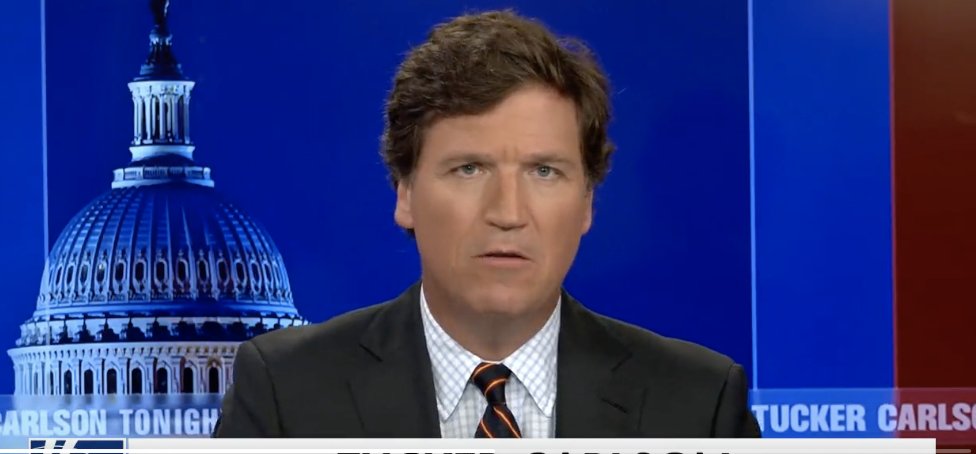
Consider the following. Internet is full of videos & photos of Russian troops in Ukraine. They are mostly created by civilians who shoot Russian forces on their phones and then upload to the internet. For example here people take videos of Russian soldiers who occupied their town
Or here someone is taking a video of how Russian column is moving - probably from a gas station
Or here a Ukrainian driver took video of a Russian Military convoy which stopped in the field, commented where this all is happening and uploaded it to TikTok. There are tons of such videos and you can easily google thousands of them, if you want
But. There are *much* fewer videos of Ukrainian troops. That's understandable. If you aggregate them, you can track location&movement of enemy. Ofc Ukrainian army wants to have such data on Russians and doesn't want Russian to have data on them. Track the enemy but stay in shadow 
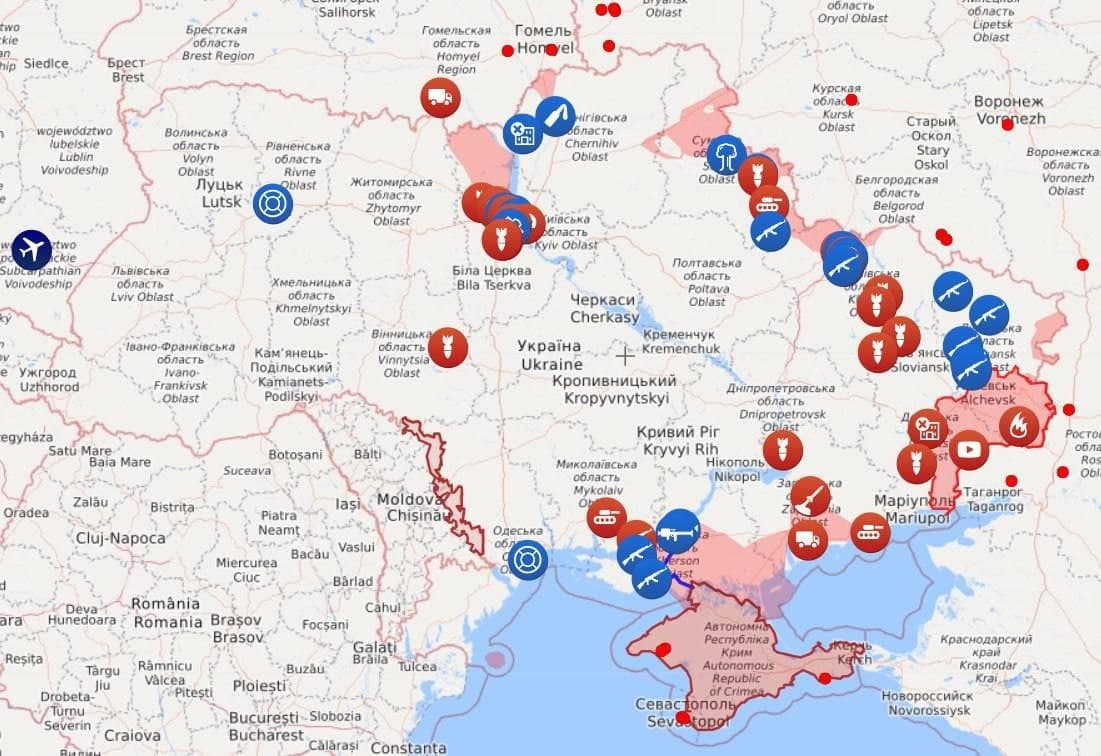
Indeed. Huge asymmetry in online visual info creates a certain bias. It seems that Ukraine is flooded by huge amounts of Russian troops, but it's not quite obvious whom they are fighting with. Ukrainian army stays in shadow. That's perhaps why so many observers thought Russia won 
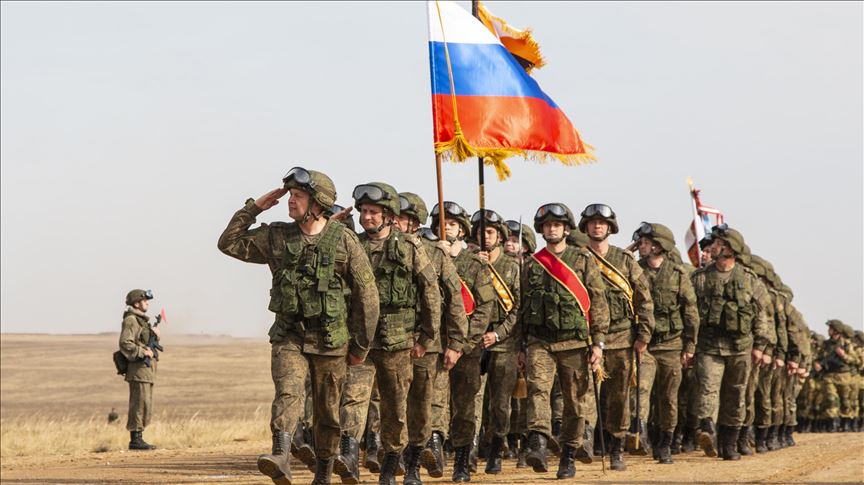
How is this information asymmetry achieved? Well, first of all majority of Ukrainians are pro-Ukraine (see a crowd chanting "go home" to Russian soldiers). They know they can help their own by recording Russians. But not all of them are thoughtful or patriotic
There is a pro-Russian fifth column. And there are simply idiots who would upload whatever for likes and a dopamine boost not thinking about the consequences. These two groups would be enough to fill the internet with recordings of Ukrainian troops. And yet, there are few of them
Why? One could assume Western social media are censuring such videos. That might be true. But this asymmetry also exists on Telegram. Which has very, very little censorship at all (you can find whatever there) and it hardly collaborated with Ukrainians. Probably with Russians 

Which means this asymmetry is not a result of platform policy. It is a result of such videos either 1) not being uploaded at all 2) or quickly deleted. How do they do that?
Alexey Chadaev, an apparatchik of Russian parliament argues that Ukrainians are tracking and deanonymizing whoever tries to upload videos with Ukrainian troops. They come to their home and explain they're quite wrong. Meanwhile, uploading videos with Russians is socially approved 

Let's sum up. One shouldn't reduce information warfare to propaganda. It's not only about who's nice and who's bad. It's also about controlling the supply of *accurate* data such as visuals of troops. Thus you create an asymmetry: the enemy is transparent but you remain in shadow
In this context much of Western war analysis sounds somewhat misleading. If you think about it, that's quite an egocentric take below: Ukrainians work on social media to win "symbolic victories" = persuade us, Twitter users, that they're cool. Nope, that's much more than that 
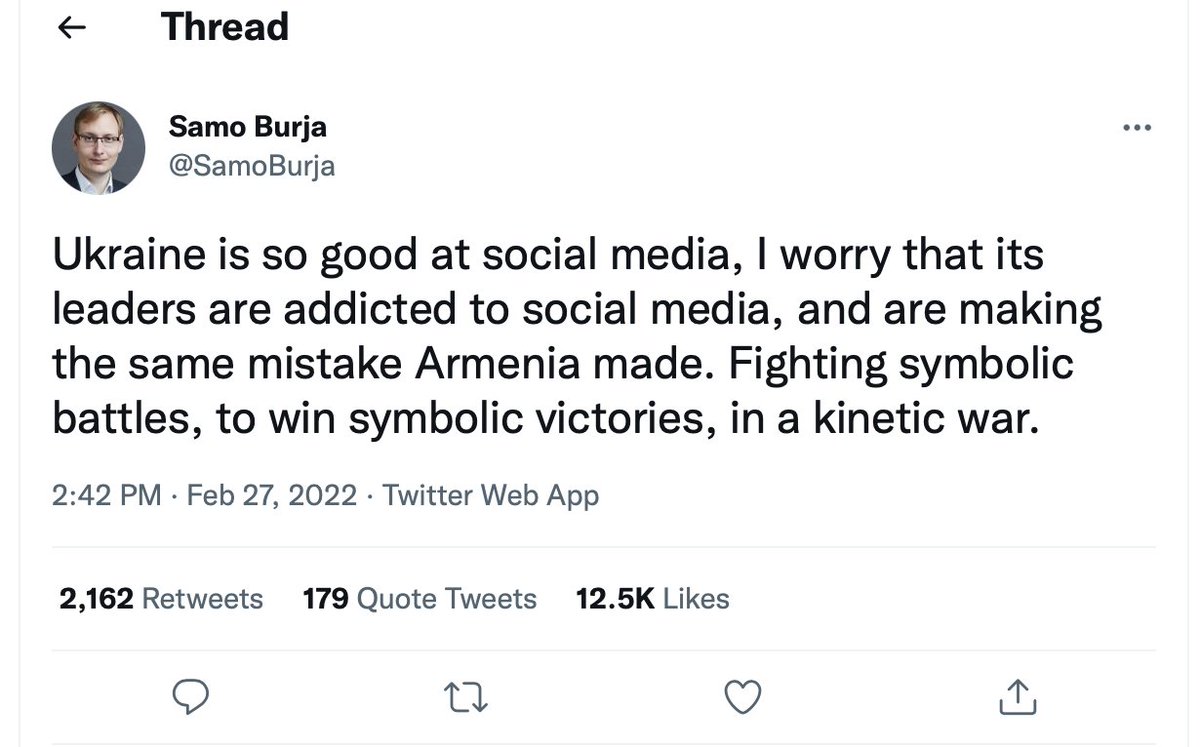
Apart from a certain egocentric perspective - "there's no more urgent business amidst of this war than to win my sympathy" - it's also a bad take for another reason. Ukraine is good in social media in comparison with whom? Apparently with their enemy, the Russians
So the underlying assumption of this argument is that Russia's *not* so good in social media. But that's just wrong. Russia's great and amazing in social media. It launched its own propaganda campaign which is absolutely victorious and achieved its goals brilliantly 
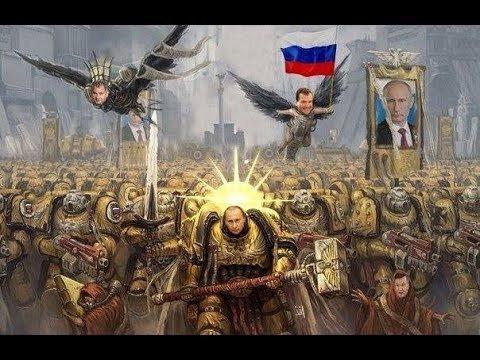
What goal does Russia pursue in this information war? What kind of image does it want to convey? I believe that the logic behind the Russian propaganda campaign is based on a fundamental Machiavellian principle - it's much more necessary to be feared than loved 
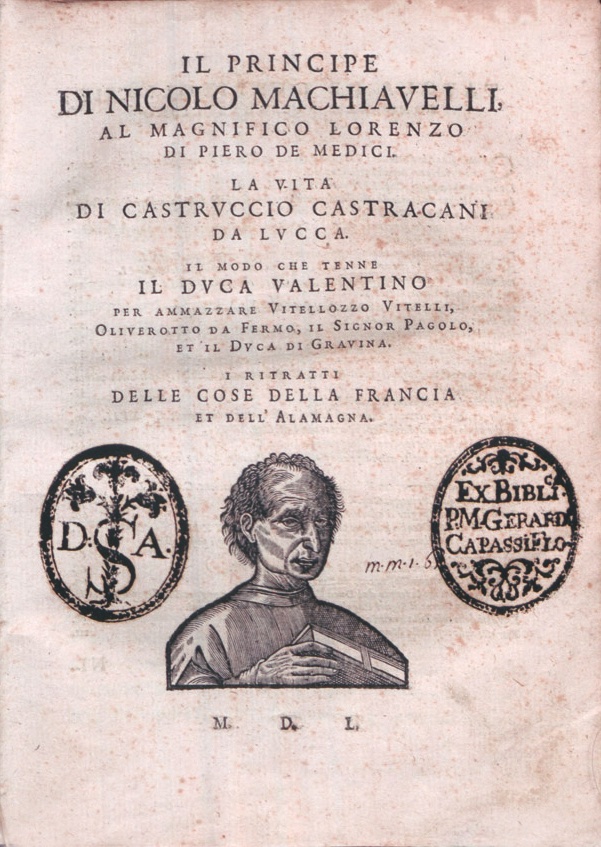
That makes total sense. Love is fragile. Love can evaporate for some minor reason - and does all the time. It can be easily broken by confrontation. Meanwhile, fear is robust. Fear is antifragile. It's much easier to disappoint a lover, than to reassure a scared person 

Putin knows that and purposefully builds a scary image. Because it's robust, antifragile. If you demand new and new concessions based of love, you both lose love and don't get concessions. But if you do it based on fear, it gonna work as long as people believe you are scary 
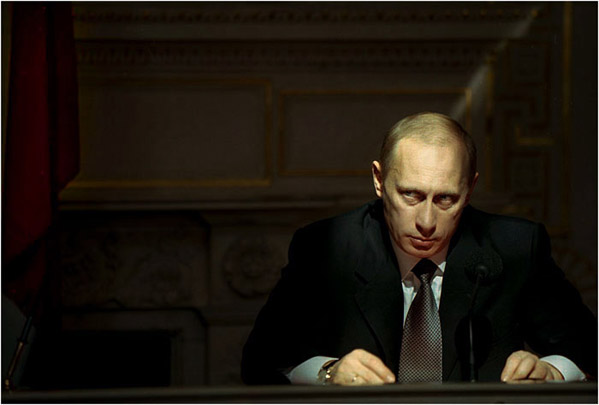
The lack of love wouldn't be a problem for Putin and wouldn't undermine his strategy. The real problem would be lack of fear. His policy is entirely based on presumed cowardice of opponent. If he's opposed, he'll back off. Because in reality he's very timid and cautious 
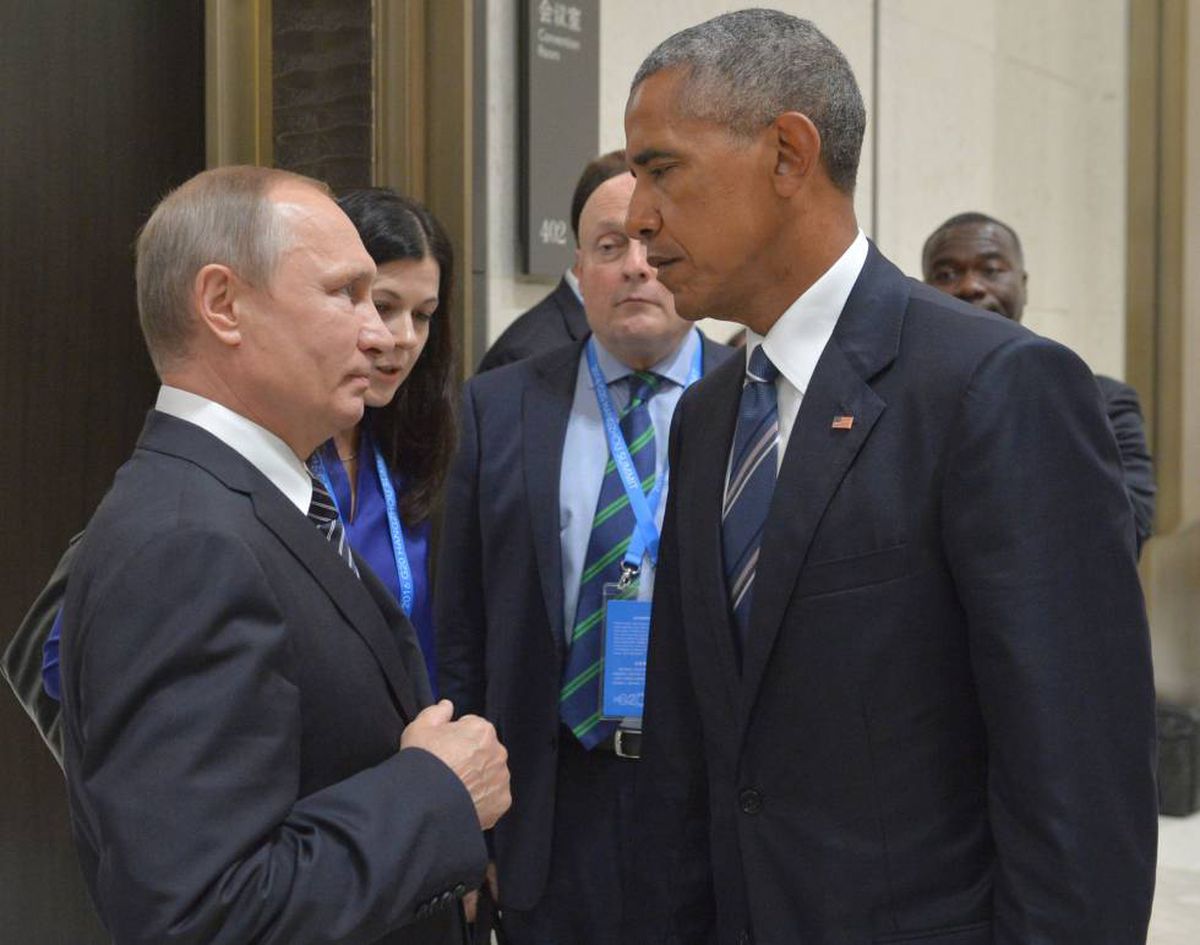
When Putin talked with Macron over a Very Long Table many interpreted it as a humiliation of the President of France. Why? Cuz Putin is so scary. Nobody believed that such a masculine, virile leader is mortally afraid of covid. And yet, that's how he talks with his own generals 

Macho image is vital for success of Putin's policies. Others give concessions simply because they're scared of such an unpredictable, dangerous, risky guy and what he may do. That's a result of a thorough media campaign that hides how safetyist and risk-avoidant Putin actually is 
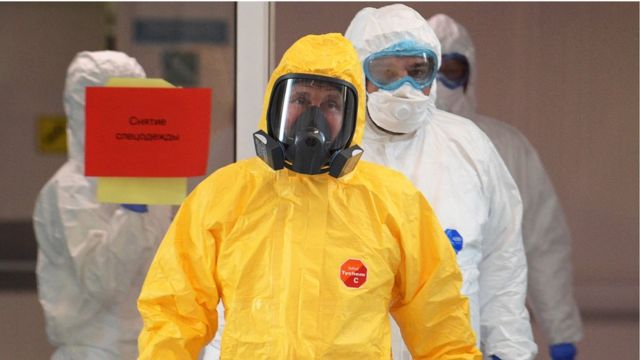
This rationale is obvious in details, too. Consider what a big focus they did on a Chechen contingent sent to Ukraine. We are sending big and scary highlanders, so now you absolutely need to surrender. Otherwise they're gonna hurt you very much. That's all a well-designed psyop 
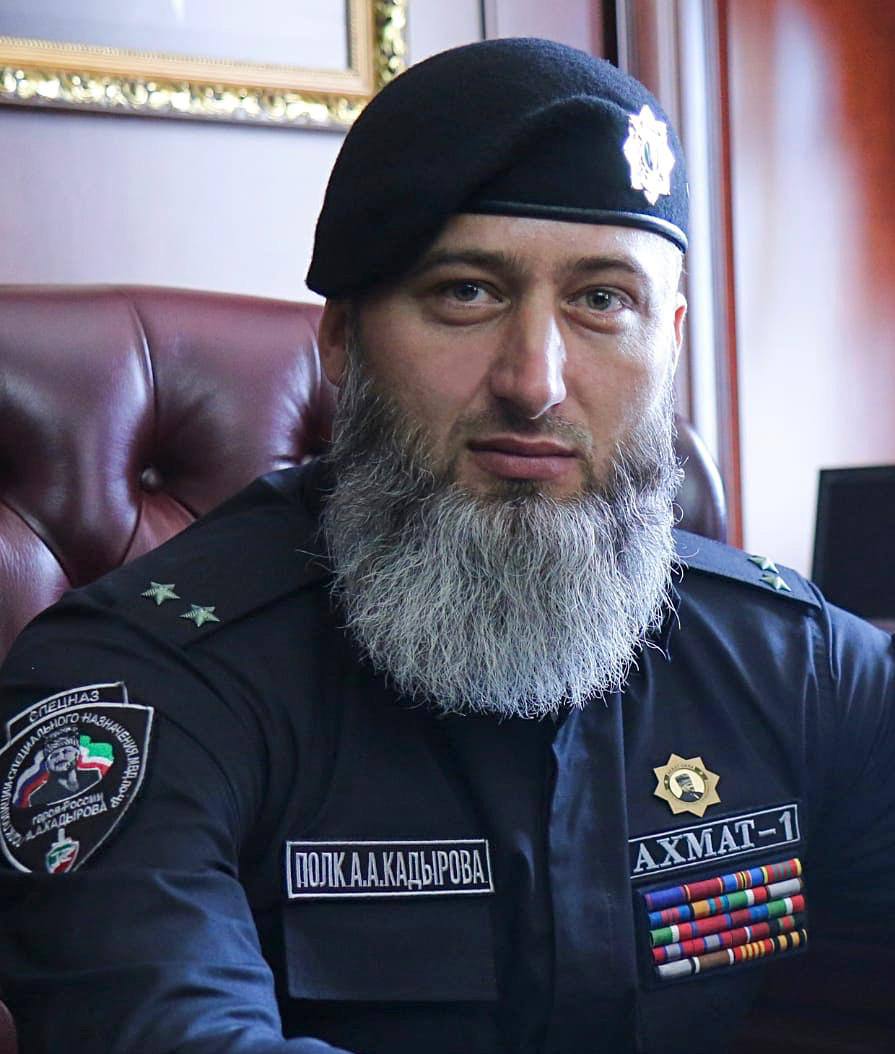
Putin is a KGB agent. They don't fight, they do special operations. An important part of which are carefully-designed psyops in order to persuade you that resistance is useless and you should submit. Or we hurt you. That's a mythos which works only as long as you believe in it 
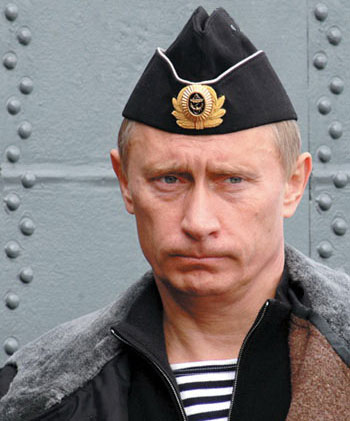
Ukraine doesn't believe in this mythos anymore. No belief = no power. Feb 24 Putin promised to "denazify" Ukraine and invaded. Next day Feb 25 Russian Foreign Ministry started complaining that Kyiv "rejected our offer to start negotiations and suggested discussing it tomorrow" 

So, according to Russian official source, Russia tried to accelerate negotiotions asap *NEXT DAY* after the invasion. Meanwhile Ukrainians decided to postpone them. Because it wasn't planned as a war. It was planned as a Special Operation, built on a psyop. Which didn't work out 
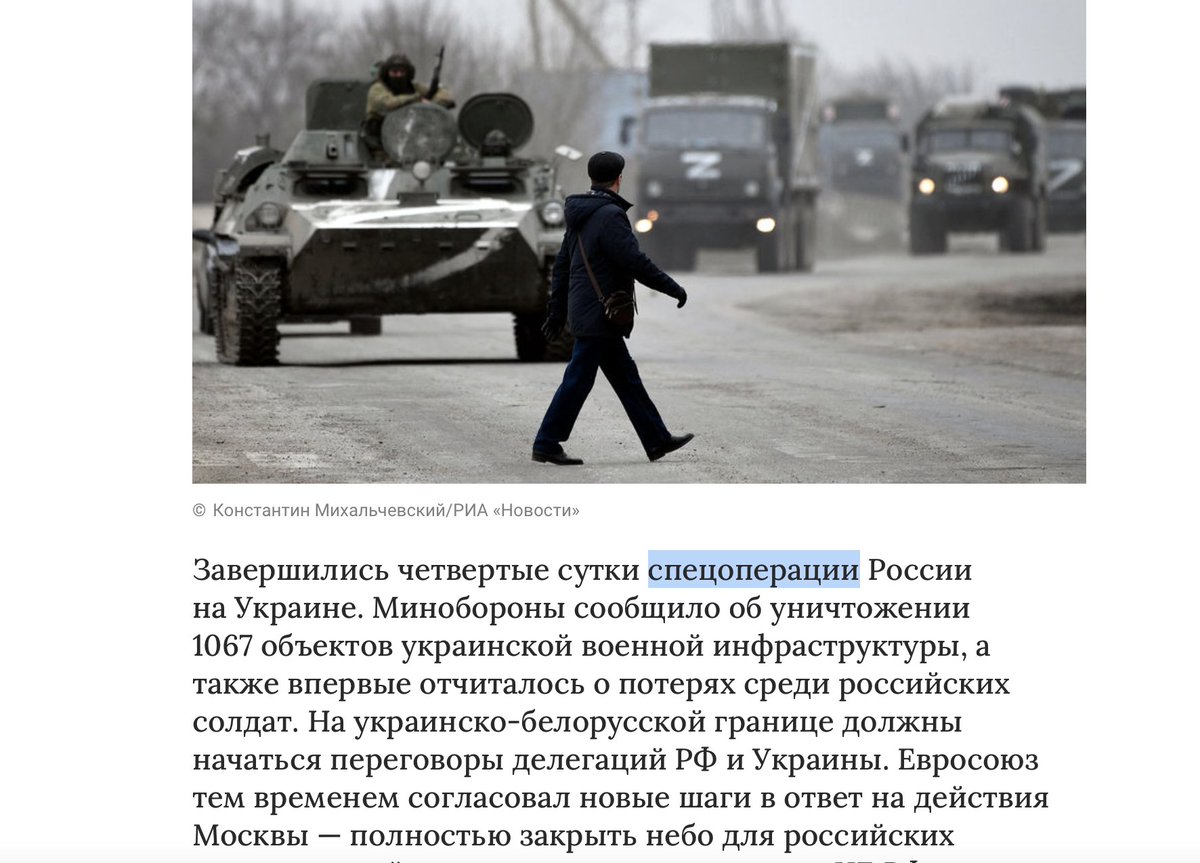
When you deal with an enemy who fights with psyops:
1. Don't believe
2. Don't give concessions
3. Increase pressure
He's timid, safetyist, risk averse. He's mortally scared and looking for ways out. He'd do or give anything for physical survival
Keep that in mind
End of 🧵
1. Don't believe
2. Don't give concessions
3. Increase pressure
He's timid, safetyist, risk averse. He's mortally scared and looking for ways out. He'd do or give anything for physical survival
Keep that in mind
End of 🧵
• • •
Missing some Tweet in this thread? You can try to
force a refresh





